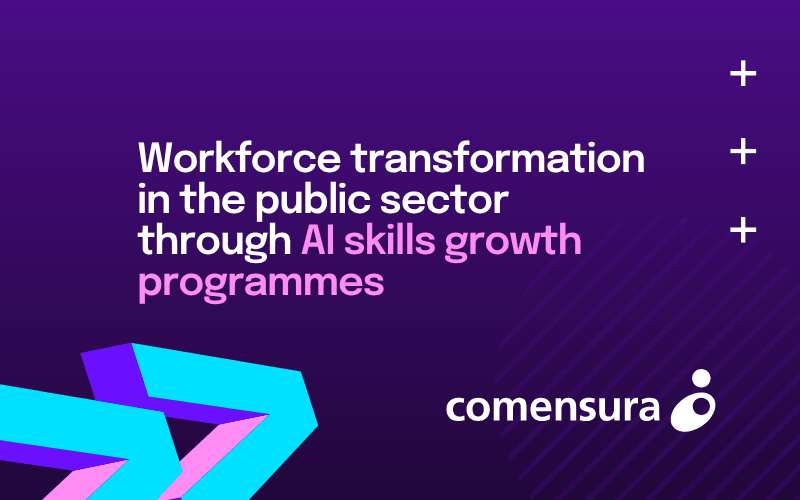

Author
2024-04-14
4 minutes
How an aging population and rising retirement age will impact the workplace
As more people work longer into their lives, employers will need to adapt to the changing demographics.
The legal retirement age is rising in many countries including the UK, but this isn’t the only reason that people are working later into their lifespan.
Some people choose to work longer because they enjoy their job and want to contribute to society or their field of expertise. They may also seek social interaction and the mental stimulation that work provides.
The rising cost of living is another huge factor. A single person will need £31,300 a year for a moderate income in retirement, according to a pensions industry body. This means many with need to subsidise their pension with a part-time job.
As of 2024, the average retirement age for men is 65.1 and 64 for women. This is a slow but significant increase from 2010 when the typical retirement age for male workers was 64.6 years old, and 62.3 for women.
Many believe that this steady increase will continue, and potentially increase at a faster rate as lifespan continues to grow.
So what does this all mean for the workplace?
How will employers cope with the changing demographics and the implications for productivity, innovation, and diversity?
A rising retirement age leading to more older colleagues will have positive effects on the workplace, such as:
- Retaining valuable experience, skills, and knowledge in the organisation, mentoring younger colleagues
- Older workers in the workplace can expand the diversity of perspectives, ideas, and approaches in the workplace, and foster a culture of learning and collaboration
- Help bridge the gap between generations and promote intergenerational communication and understanding
- Reduce labour shortages and support the economic growth and sustainability of society
However, a rising retirement age also poses some challenges for older workers in the workplace, such as:
- Age discrimination, stereotypes, or biases from co-workers, leading to them feeling undervalued, unchallenged, or unsupported
- Difficulties adapting to the rate of change in digital and technology, the work environment, or organisational culture, and as a result need more training and support to update knowledge, approach, and skills
- Experience more health problems, physical limitations and require more flexible work arrangements, such as part-time, telework, or job-sharing
The pros appear to vastly outweigh the cons (let’s face it, the cons could apply to anyone of any age) and many organisations could benefit from greater diversity in age range to create a balanced workforce. The presence of older employees provides more perspectives and a greater range of experiences.
Therefore, employers should adopt some strategies to help older employees overcome these challenges and thrive in the workplace, such as:
- Creating a culture of respect, inclusion, and diversity, where older workers are valued for their experience, wisdom, and loyalty, and given opportunities to mentor, coach, and collaborate with younger workers
- Provide ongoing training and development programmes, that are tailored to converting the experience and knowledge of older workers to tangible skills and competencies that benefit the organisation
- Offering flexible tasks according to current physical health and not affect long-term health outlooks. For example, a significant number of 60–64-year-olds - 24% of men and 42% of women – have diagnosed arthritis. Regular physical activity such as muscle strength building exercises can help with the treatment of it, but anything high impact or strenuous physical activity without the ability to warm up first may be harmful and cause significant pain.
It is important to ensure there is no assumption or expectation for employees with this challenge to carry out tasks that could injure them or exasperate their condition. They should never be in a situation where they are concerned to say, “I’m not able to do that.” - Offering flexible working opportunities that can fit around family or personal situations such as caring responsibilities and provide relevant and appealing benefits, such as health insurance, flexible leave options, or CSR days
In conclusion, older workers are a huge benefit to the workforce. They bring a wealth of experience, knowledge, and skills that can enhance the performance, productivity, and innovation of any business or organisation. However, they also face some challenges and barriers that may hinder their full potential and satisfaction.
Employers should recognise these challenges and implement strategies to support and empower older workers, as well as foster a culture of respect, inclusion, and diversity across all age groups. By doing so, employers can create a balanced and harmonious workforce that can thrive.
Afterall, today’s ‘younger workers’ are tomorrow’s ‘older workers’.
Comensura has worked with a client that is a company that offers solutions that create a more sustainable environment and help fight climate change. The client wanted to build upon their successful ED&I hiring within their permanent headcount, by expanding to focus on contingent ED&I hiring across underrepresented groups. Find out more about how they worked to attract and retain over 55's in the waste management sector.
Insights to drive workforce performance
Workforce insights in your inbox
Sign up for our newsletter with the latest workforce management news, insights, analysis and more.
United Kingdom
First Floor, Mulberry House
Parkland Square
750 Capability Green
Luton, LU1 3LU
Australia
Suite 1403
Level 14, 309 Kent Street
Sydney
NSW 2000










